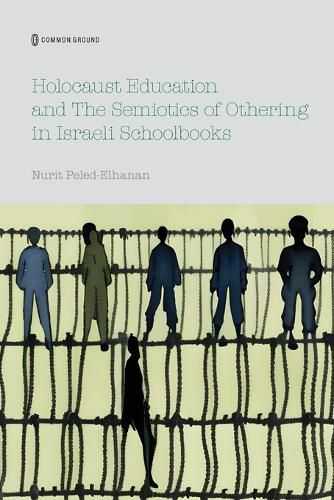Readings Newsletter
Become a Readings Member to make your shopping experience even easier.
Sign in or sign up for free!
You’re not far away from qualifying for FREE standard shipping within Australia
You’ve qualified for FREE standard shipping within Australia
The cart is loading…






This title is printed to order. This book may have been self-published. If so, we cannot guarantee the quality of the content. In the main most books will have gone through the editing process however some may not. We therefore suggest that you be aware of this before ordering this book. If in doubt check either the author or publisher’s details as we are unable to accept any returns unless they are faulty. Please contact us if you have any questions.
The Zionist pedagogical narrative reproduced in schoolbooks views the migration of Jews to Israel as the felicitous conclusion of the journey from the Holocaust to the Resurrection. It negates all forms of diasporic Jewish life and culture and ignores the history of Palestine during the 2000-year-long Jewish "exile." This narrative otherizes three main groups vis-a-vis whom Israeliness is constituted: Holocaust victims, who are presented in a traumatizing manner as the stateless and therefore persecuted Jews "we" refuse but might become again if "we" lose control over Palestinian Arabs, who constitute the second group of "others." Palestinians are racialized, demonized, and portrayed as "our" potential exterminators. The third group of "others" comprises non-European (Mizrahi and Ethiopian) Jews. They are described as backward people who lack history or culture and must undergo constant acculturation to fit into Israel's "Western" society.
Thus, a rhetoric of victimhood and power evolves, and a nationalistic interpretation of the "never again" imperative is inculcated, justifying the Occupation and oppression of Palestinians and the marginalization of non-European Jews. This rhetoric is conveyed multimodally through discourse, genres, and visual elements.
The present study, which advocates a multidirectional memory, proposes an alternative Hebrew-Arabic, multi-voiced and poly-centered curriculum that would relate the accounts of the people whom the pedagogic narrative seeks to conceal and exclude. This joint curriculum will differ from the present one not only in content but also ideologically and semiotically. Instead of traumatizing and urging vengeance, it will encourage discussion and celebrate diversity and hybridity.
$9.00 standard shipping within Australia
FREE standard shipping within Australia for orders over $100.00
Express & International shipping calculated at checkout
This title is printed to order. This book may have been self-published. If so, we cannot guarantee the quality of the content. In the main most books will have gone through the editing process however some may not. We therefore suggest that you be aware of this before ordering this book. If in doubt check either the author or publisher’s details as we are unable to accept any returns unless they are faulty. Please contact us if you have any questions.
The Zionist pedagogical narrative reproduced in schoolbooks views the migration of Jews to Israel as the felicitous conclusion of the journey from the Holocaust to the Resurrection. It negates all forms of diasporic Jewish life and culture and ignores the history of Palestine during the 2000-year-long Jewish "exile." This narrative otherizes three main groups vis-a-vis whom Israeliness is constituted: Holocaust victims, who are presented in a traumatizing manner as the stateless and therefore persecuted Jews "we" refuse but might become again if "we" lose control over Palestinian Arabs, who constitute the second group of "others." Palestinians are racialized, demonized, and portrayed as "our" potential exterminators. The third group of "others" comprises non-European (Mizrahi and Ethiopian) Jews. They are described as backward people who lack history or culture and must undergo constant acculturation to fit into Israel's "Western" society.
Thus, a rhetoric of victimhood and power evolves, and a nationalistic interpretation of the "never again" imperative is inculcated, justifying the Occupation and oppression of Palestinians and the marginalization of non-European Jews. This rhetoric is conveyed multimodally through discourse, genres, and visual elements.
The present study, which advocates a multidirectional memory, proposes an alternative Hebrew-Arabic, multi-voiced and poly-centered curriculum that would relate the accounts of the people whom the pedagogic narrative seeks to conceal and exclude. This joint curriculum will differ from the present one not only in content but also ideologically and semiotically. Instead of traumatizing and urging vengeance, it will encourage discussion and celebrate diversity and hybridity.